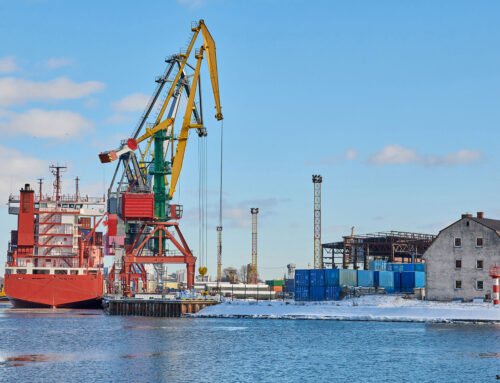Navigating the Impacts on Global Supply Chains
Incident Overview: A Disruption in the Heart of Global Trade
The recent explosion aboard the Yang Ming vessel YM Mobility at Ningbo Port, China, has sent shockwaves through the global supply chain network. As one of the world’s busiest container terminals, Ningbo’s sudden closure following this incident has raised serious concerns for businesses dependent on smooth & timely international trade—especially along key routes originating from Asia.
The Explosion: A Catalyst for Widespread Disruption
On August 9, a container loaded with hazardous materials exploded aboard YM Mobility while it was berthed at Ningbo Beilun’s Phase III Terminal. The container, carrying organic peroxide materials, was reportedly a reefer used as a dry container substitute. This tragic event not only led to significant damage but also triggered the indefinite closure of the terminal—a critical node in global shipping lanes.
Navigating the Ripple Effects on Supply Chains
The aftermath of this disruption is being closely monitored by industry leaders. The closure of Ningbo Port adds a new layer of complexity to an already fragile global supply chain—which has been grappling with recent challenges like Typhoon Gaemi. The immediate concerns include further deterioration in ocean shipping schedules, increased delays in container availability, & significant hurdles in transporting dangerous & hazardous goods.
Mitigation Strategies: Recommendations for Businesses
To mitigate the impact of this disruption, companies are being advised to take proactive measures:
- Explore Alternative Shipping Routes: With the Ningbo terminal out of operation, it’s crucial to identify & utilize alternative routes to avoid prolonged delays.
- Reinforce Safety Protocols: The incident underscores the importance of stringent safety measures—especially when dealing with hazardous materials.
- Stay Informed: Continuous updates on the situation are vital for adjusting supply chain strategies in real-time.
- Plan for Extended Dwell Times: Companies should prepare for longer than usual dwell times as the global logistics network adjusts to the terminal’s closure.
Looking Ahead: Ensuring Resilience in the Face of Disruption
As the global supply chain faces this latest challenge, resilience remains key. By staying ahead of the curve with informed strategies & a focus on adaptability, businesses can navigate these disruptions & continue to thrive despite the obstacles presented by this significant event.







